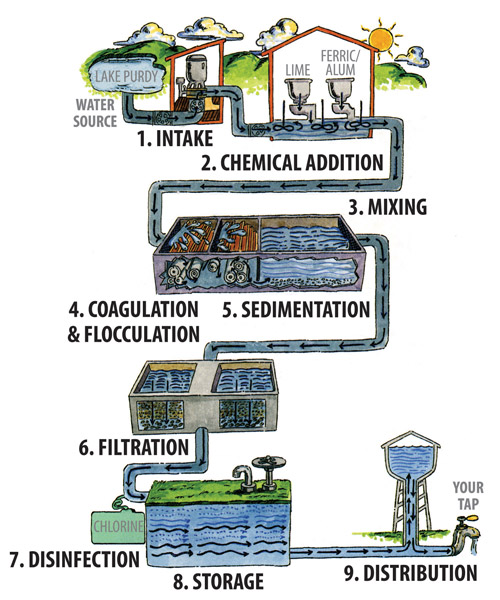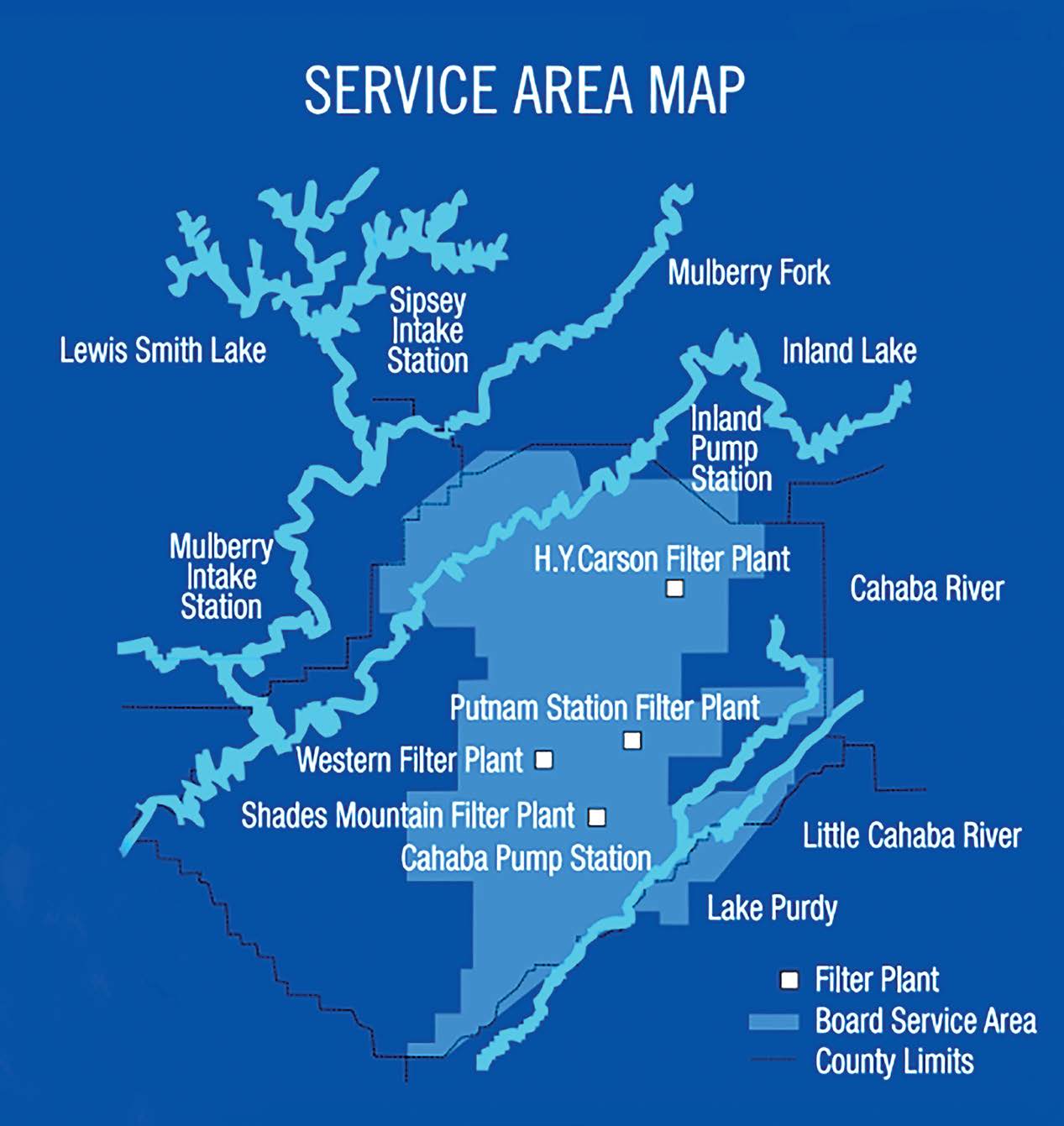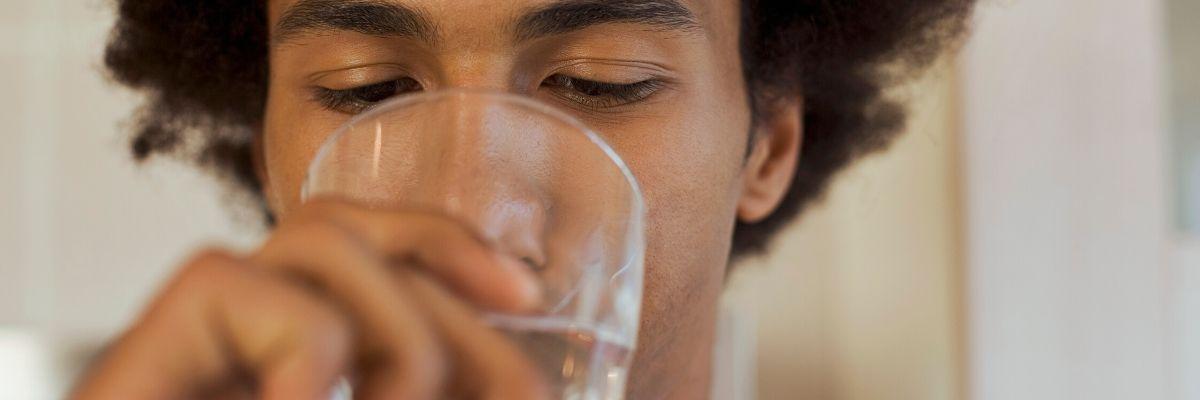Birmingham Water Works delivers the highest quality water from source to tap. When Birmingham Water Works customers turn on the tap, they can count on their water being purified, monitored and tested to protect their health and safety. Birmingham Water Works provides service to more than 600,000 people throughout the City of Birmingham and surrounding areas. We are the largest drinking water provider in Alabama, producing more than 100 million gallons of water each day.
Your water’s journey begins in the Warrior and Cahaba rivers and ends with clean, great-tasting water that comes out of your faucet on demand. As part of our extensive testing program, each year BWWB collects thousands of samples from our water sources, water filter plants and at sites throughout the service area and conducts more than 100,000 water quality tests to confirm that we provide the highest quality water that meets all state and federal purity standards.
Water Quality
Every day, Birmingham Water Works conducts hundreds of tests in our EnviroLab. The BWWB lab is certified by the Alabama Department of Environmental Management (ADEM) and the Environmental Protection Agency (EPA). Our scientists and technicians analyze more than 100,000 water quality tests each year to ensure the quality and safety of our drinking water.
Our Annual Water Quality Report is designed to keep our customers informed about their water and show the results of all the testing we do. The report, which is also known as a Consumer Confidence Report, is prepared in adherence to the EPA’s rules. Birmingham Water Works drinking water meets or is better than all of EPA’s water quality standards.


How Water is Treated
It takes more than just turning on the tap. Water treatment is a very expensive and involved process. The Birmingham Water Works has four water treatment facilities – Carson, Putnam, Shades Mountain and Western Filter Plants. Combined, these filter plants deliver an average of 100 million-gallons of water a day to customers in five counties.
1. Intake - Water is taken from the source. Logs, fish and plants are screened out and water is drawn into the treatment plant.
2. Chemical Addition - Chemicals are added to kill germs and improve taste and odor.
3. Mixing - Water and chemicals are rapidly mixed.
4. Coagulation & Flocculation - The particles stick together and form larger particles called flocculants or “floc.”
5. Sedimentation - The water and floc particles flow into a sedimentation basin. The floc then settles to the bottom and is removed from the water.
6. Filtration - Water flows through filters. The filters are made of layers of sand and gravel.
7. Disinfection - A small amount of chlorine or other disinfecting chemical is added to kill any remaining germs and keeps the water safe as it travels to houses and businesses.
8. Storage - Water is placed in a closed tank or clearwell.
9. Distribution - Water is transported to houses and businesses. The Birmingham Water Works delivers on average 100 million gallons of water per day.
BACK TO TOPWater Sources
Good source water is the result of the Birmingham Water Works’ aggressive environmental protection policy. Our Watershed Protection Policy limits development in areas close to our water sources, which reduces pollutants. Watersheds are areas of land where all the water that drains off runs into a river, stream or lake. Keeping these watersheds as pristine as possible means that our source water is high quality. BWWB has focused on purchasing land to increase our watershed so that we can protect our source water and decrease the amount of treatment required. This gives our customers higher-quality drinking water at a more affordable price. The average cost to treat and deliver water to the distribution system from our 4 treatment plants is $450.28 per million gallons.
Birmingham Water Works gets water for its customers from several surface water sources, and our pump stations deliver this water for treatment to the four filter plants:
- Shades Mountain Filter Plant is served by the Cahaba River and the Lake Purdy Reservoir
- Western Filter Plant is served by the Sipsey and/or Mulberry Forks of the Warrior River
- Putnam Filter Plant is served by Inland Lake or Sipsey/Mulberry Forks of the Warrior River
- Carson Filter Plant is served by Inland Lake or the Sipsey Fork of the Warrior River


Main Replacements and Project Updates
We do our best to notify you in advance if there are plans for a construction project in your neighborhood. You can find more information about specific projects below.Birmingham Water Works’ system of pipes, pump stations, filter plants and reservoirs covers more than 759 square miles and has more than 4,000 miles of water mains (pipes). With so much to maintain you may see crews replacing pipe or building new facilities.
Current Replacement Projects Under Construction
Current Relocation Projects Under Construction
Want to learn more about water?
Below are several links to resources in the water industry.
American Water Works Association (AWWA)
Association of Metropolitan Water Agencies (AMWA)
AWWA Alabama Mississippi Section
US Environmental Protection Agency

